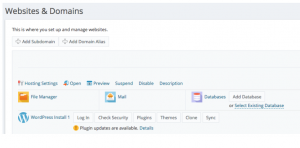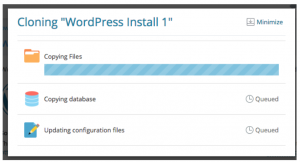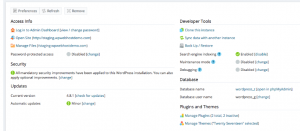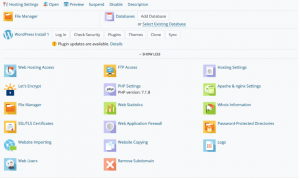How To Create Staging Area For Domain
At a certain time, you want to test out a new theme, plugins or changes to your WordPress. Website to see if things work out before deploying to the live WordPress website. The conventional way of doing this is you will need to re-upload or duplicate your existing WordPress installation folder, export and import your database to another database to create this sandbox environment. That’s lots of work involved!
With our WordPress Expert Managed package, you can easily get this done with just a few mouse clicks!
1. Login to your WordPress control panel via the client area portal.
2. On the WordPress control panel dashboard, click on the “Clone” button on the WordPress installation that you wish to make a copy of WordPress as a staging/sandbox environment.

2. You will be brought to the WordPress Clone setup page.

3. By default, the cloning mechanism will make a copy of your WordPress install as a subdomain “staging.yourWordPressdomain.com”. If you wish to change other “staging” subdomain name, click on the “a new subdomain” link and edit the subdomain as the pop-up box show. The changes will be reflect. The clone will also make a copy of the live database with a new database.
4. Once you are ready, click the OK and the cloning process will be started.

5. Once the process completed, you will be landed on the WordPress installation as you have on your default but this is on a staging.

6. If your default WordPress domain DNS name server is using our pair of a name server, you will be able to use that immediately by browsing the domain name. Otherwise, you will need to create a new DNS A record from your 3rd party DNS server to point to your WordPress hosting server IP. Read this article for more details on how to get the IP address of your WordPress hosting server.
7. As you back to your WordPress control panel dashboard, you will see that the staging WordPress installation is now having its own configuration setting as you scroll through the page.


